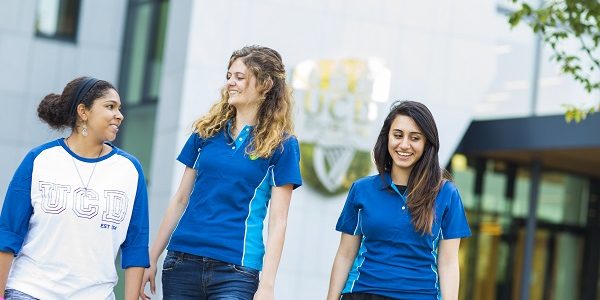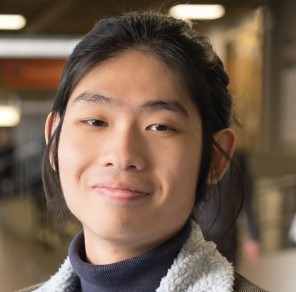Global Studies
BA (Hons) (NFQ Level 8)

Course Video
Curricular information is subject to change.
Open AllGlobal Studies invites students to ask how a deeply connected world has come into being, why barriers and divisions remain and how ‘local’ relates to ‘global’. We ask how people experience and make sense of globalisation, as an opportunity, challenge and threat. We analyse the impact people have on the global environment. We give students the skills, historical background, cultural context, and linguistic knowledge, to live and work in globally connected societies. This is the only undergraduate Global Studies degree available in Ireland.
Global Studies examines major issues shaping the world, including: the environment, imperialism, capitalism and public health, through history, film, drama, culture and language modules. Students will explore a new language: Arabic, Chinese, French, German, Italian, Japanese, Portuguese, Russian, Spanish or Swahili – and will spend at least one trimester studying abroad.
First Year
Modules include:
- From Micro to Global
- Radicals & Revolutionaries
- US History, 1776-1991
- Reading World Literatures
- Media & Globalisation
- Hispanic Cultures & Societies
Second Year
Modules include:
- A History of Anti-Immigration
- Islam and Christianity
- Sustainable Development Goals
- International Relations
- Modern Migration
- Modern American Literature
- Global Asia
- Global Bollywood
- Intercultural Communication
- Language modules
Third and Fourth Year
In your third year, you will study abroad for a trimester or year to develop your language skills and immerse yourself in a new culture. If you study abroad for a trimester, you then have a range of options that will enable you to broaden your horizons and enrich your academic experience:
- Apply for a competitive internship in an area that interests you and relates to your area of study
- Deepen your knowledge by studying a dedicated range of European Studies modules. Modules include: Genocide & Mass Violence, Slavery & the New World, US Pivots to Asia, 1890s-1950s, Global Eco Literature, Global Science Fiction, Global Development Goals, Language modules
Your fourth year will be spent at UCD, where you will complete a dissertation on an independently developed topic and continue deepening your knowledge in a range of Global Studies modules.
Students will spend part of their third year abroad with opportunities available in universities across across the globe, in Asia, Australia, Latin America and the Middle East.
Our Global Studies graduates have found employment in; Business Consultancy, Journalism, Diplomatic Service, Marketing, NGOs, Policy Analyst, Public Relations, Radio/TV Producer.
Graduates are prepared for a wide range of taught MA Programmes in the fields of Arts and Humanities such as: MA in Global History, MA in International War Studies, MA in Environmental Humanities, MA in European History, MA in Modern Languages, MA in Linguistics & Applied Linguistics, MA in Public History, MA in Cultural Policy & Arts Management. In turn, these degrees prepare graduates for PhD study. See www.ucd.ie/graduatestudies
“This degree allows you to explore new languages and cultures. From scratch you can choose to study new languages that are widely used in all continents of the world, such as Arabic, Portuguese, Japanese, and Swahilii. The study abroad opportunities in third year allow you to fully experience the application of these languages and culture. In addition to language studies, Global Studies introduces you to an exciting and unique range of global literature and history modules. This brings together a new and radical perspectives from across the world. Overall if you are looking to widen your horizon for the world, this is definitely a good fit!”
Raphael Kam, Student
UCD School of History
Tel. 01 716 8375
Email. history@ucd.ie


